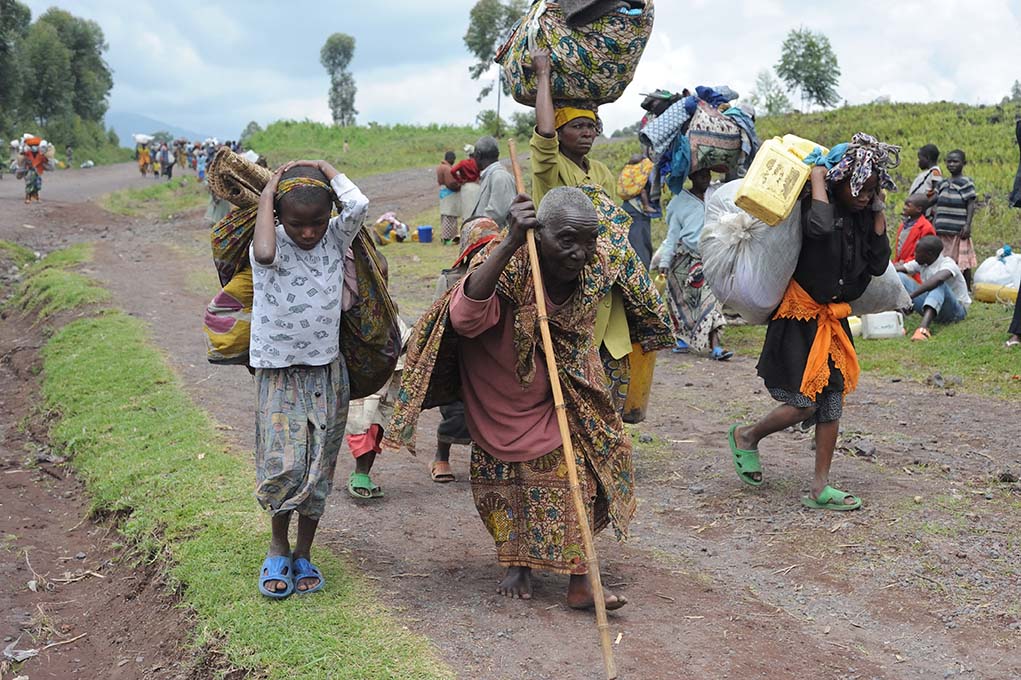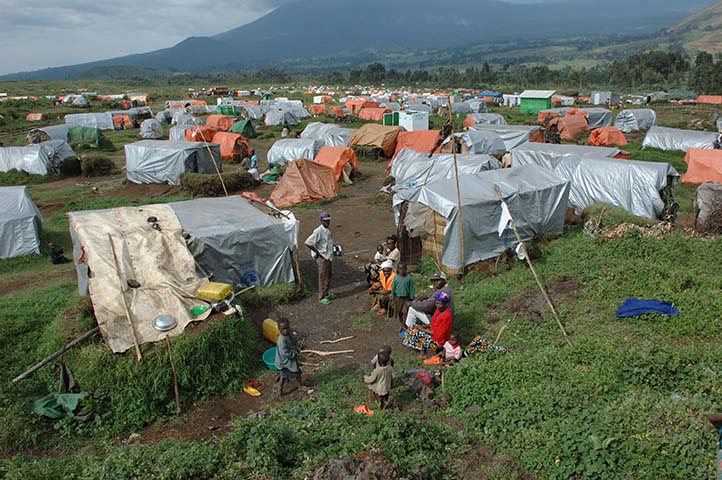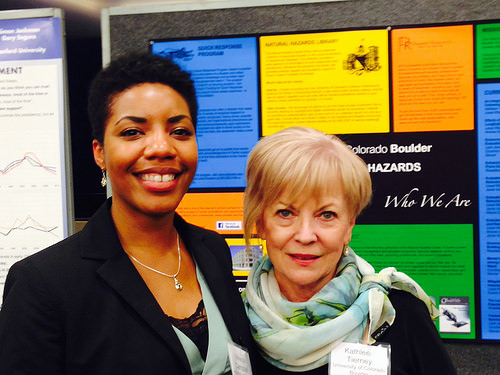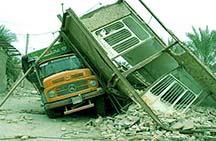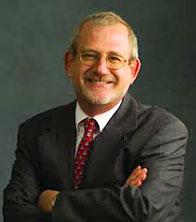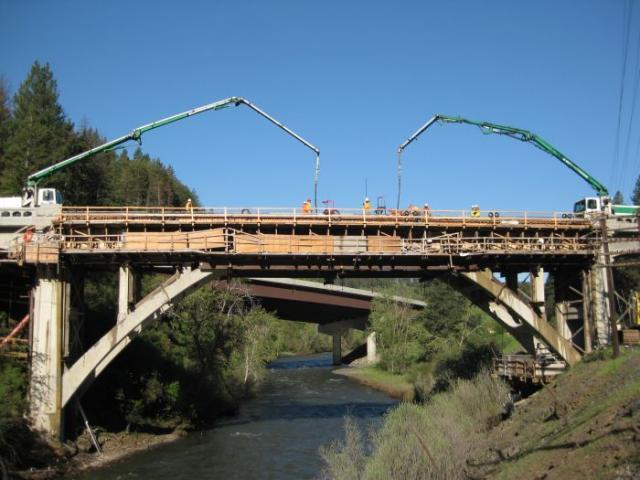Lori Hunter discussed her research on the relationship between human migration and the natural environment on Inside Higher Ed's Academic Minute, June 8. Listen to the podcast and access a transcript here.
featured
Disasters and Displacement Discussed on KGNU Radio’s “It’s the Economy”
Lori Hunter and visiting FIRST Scholar Robert McLeman were guests on KGNU Radio's show "It's the Economy", focused this week on disasters and displacement, May 28. Listen to the broadcast here. Twitter link here.
Hazards Center Research Presented on Capitol Hill
Kathleen Tierney and Nnenia Campbell presented their research at the 21st Annual Coalition for National Science Funding (CNSF) Exhibition and Reception on Capitol Hill in Washington, DC, April 29, 2015. The Natural Hazards Center was selected by the Office of the Vice Provost for Research to travel to Washington DC to represent CU at the annual exhibition and reception sponsored by the Coalition for National Science Funding, a group that works to promote and sustain funding for federally sponsored science research, especially research that is funded by the National Science Foundation. As part of the CNSF event, Kathleen and Nnenia spent an afternoon on Capitol Hill and met with staff in the offices of Senators Michael Bennett and Cory Gardner and Representatives Jared Polis and Ed Perlmutter. They then hosted a booth at the Capitol Hill CNSF reception, which was attended by a number of representatives from funding agencies such as NSF, NASA, and the Department of Energy, representatives from professional associations such as ASA and the Coalition of Social Science Associations (COSSA), as well as Congressional staffers from House and Senate committees that approve and appropriate budgets for science research and some members of Congress. A major focus of their discussions on the Hill and at the NCSF reception was proposed cuts to social science research at the National Science Foundation, where the Republican budget would reduce funding for NSF's Social, Behavioral, and Economic Sciences Directorate by 45%. They also expressed opposition to proposed Republican budget cuts to scientific programs focusing on climate change.
Earthquakes and Hazards Response
Courtney Welton-Mitchell's research on earthquakes and hazards response are featured on an interview on KGNU Radio. Read more and listn here: Nepal earthquake interview 'CU researcher on earthquake in Nepal . Courtney also recently participated in the Earthquake Engineering Research Institute's Reconnaissance Mission to Nepal. An associated presentation (with audio) is available here: Social, psychological, and cultural factors influencing recovering and rebuilding in Nepal.
New Director for the Institute of Behavioral Science
On January 1, 2015, Myron Gutmann officially took the helm at the Institute of Behavioral Science (IBS). Dr. Gutmann took leave from positions at NSF and the University of Michigan to become director of IBS and professor of history at the University of Colorado. Dr. Gutmann is well recognized for his pioneering visions for the social sciences, which he has continued to advance as director of the Inter-university Consortium for Political and Social Research (ICPSR) and then as head of NSF's Social, Behavioral and Economic Sciences.
Nine Experts Craft Disaster Resilience Framework for Communities
Liesel Ritchie has been named a NIST Disaster Resilience Fellow. The National Institute of Standards and Technology (NIST) has engaged nine experts in fields ranging from transportation and water infrastructure to societal dimensions of disasters to further its ongoing effort to draft a disaster resilience framework for U.S. communities. Recognized leaders in their fields, NIST's new "disaster resilience fellows" were chosen to complement the knowledge and skill sets of agency researchers developing the framework — a guidance document to help communities prepare for hazardous events and to restore vital functions quickly if disruptive incidents occur. The fellows also will assist NIST staff in establishing a Disaster Resistance Standards Panel. With initial funding from NIST, this independent body will be responsible for updating the framework and identifying new priorities for standards development and other actions that will help communities to better prevent natural and human-caused hazards from becoming disasters. For more information on the fellows and the NIST-led community disaster resilience effort go to: http://www.nist.gov/el/building_materials/resilience/
